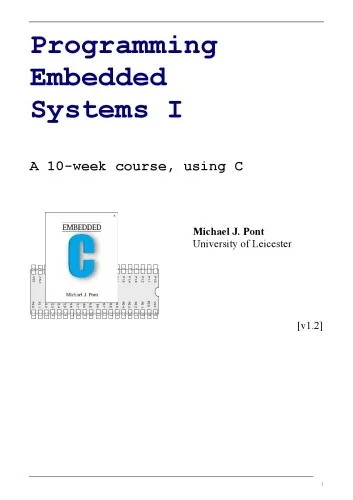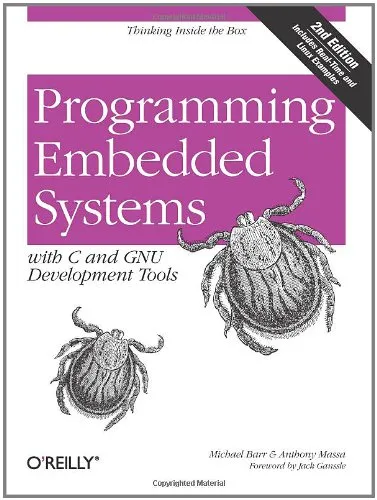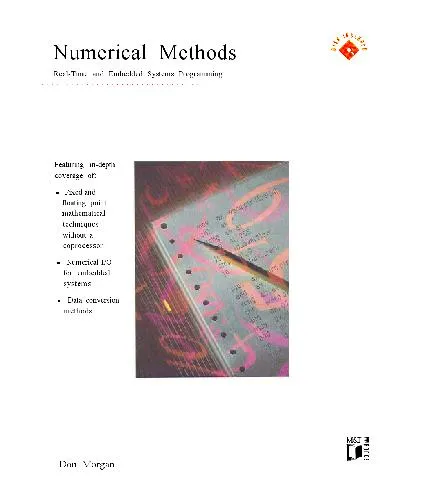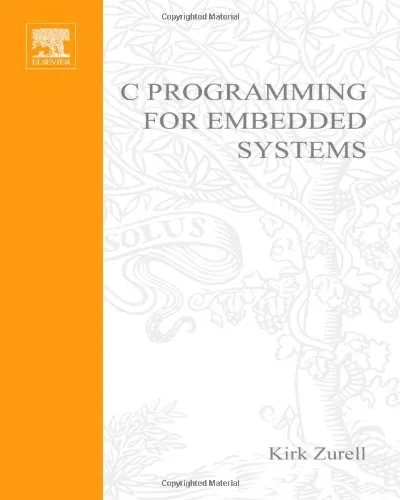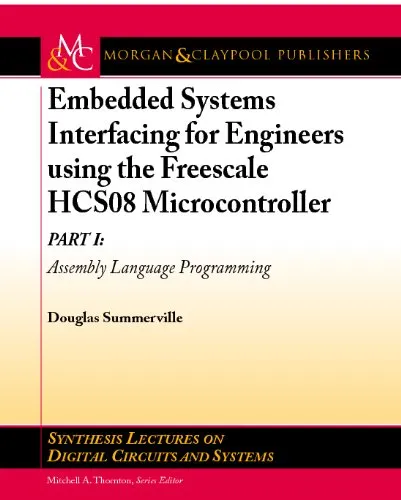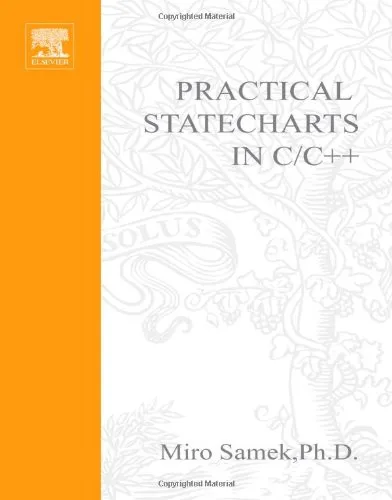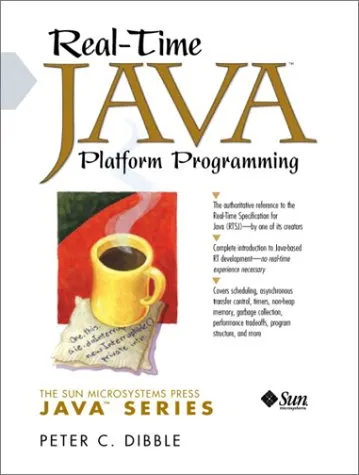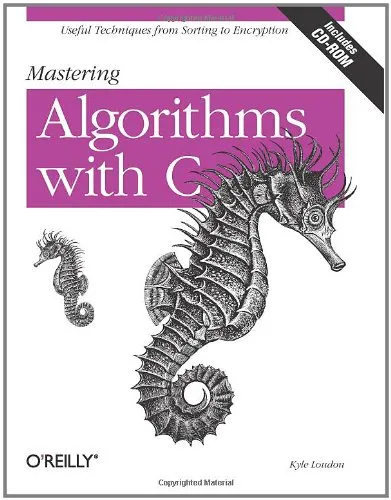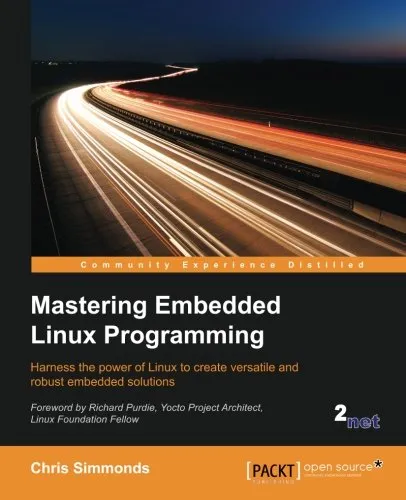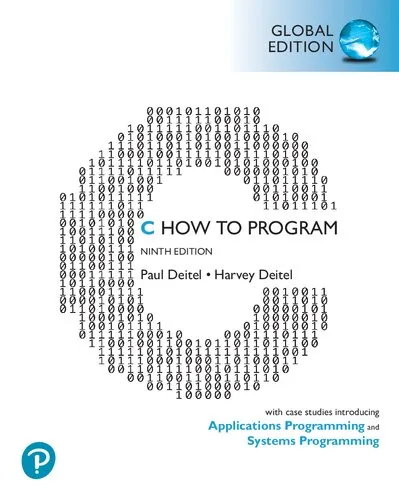Programming embedded systems using C
4.5
Reviews from our users

You Can Ask your questions from this book's AI after Login
Each download or ask from book AI costs 2 points. To earn more free points, please visit the Points Guide Page and complete some valuable actions.Related Refrences:
Welcome to "Programming Embedded Systems Using C"
"Programming Embedded Systems Using C" is a comprehensive guide for both novice and experienced engineers seeking a clear and practical insight into programming embedded systems with the C programming language. The book bridges the gap between higher-level programming concepts and the low-level details critical for embedded application development. By offering a mix of theory, real-life examples, and hands-on coding exercises, this book equips you with the essential skills to create robust and efficient embedded systems.
In this ever-evolving world of technology, embedded systems are embedded (pun intended) in nearly every facet of our daily lives, from consumer electronics and medical devices to automotive systems and industrial equipment. With the growing significance of embedded software development, this book delves deeply into the practical use of C, which has long been the language of choice when it comes to programming embedded devices. By following the guidance and methodologies outlined in this book, you will gain not only technical proficiency but also a conceptual understanding of how embedded systems work.
Detailed Summary of the Book
"Programming Embedded Systems Using C" focuses on blending theoretical foundations with hands-on practices to ensure that readers understand the principles of embedded system design as much as the implementation itself. The book begins by introducing the basics of embedded systems, including hardware-software integration, microcontrollers, and real-time environments.
The journey continues as the book explores C programming and its role in embedded systems, covering topics such as:
- C language constructs tailored specifically for embedded systems programming.
- Managing input/output interfaces and peripherals.
- Writing interrupt service routines (ISRs) efficiently.
- Techniques for memory optimization and management in restricted environments.
- Debugging and testing embedded code for reliability and performance.
- Working with real-time operating systems (RTOS) and understanding multithreading.
The book is packed with coding examples and exercises that enable readers to apply theoretical knowledge in real-world scenarios. All concepts are explained in a systematic and structured manner, making it easier for readers to follow the flow and progressively enhance their skills.
Key Takeaways from the Book
By the time you finish this book, you'll have a clear understanding of the fundamentals of embedded systems as well as advanced techniques. Here are the key takeaways:
- Grasp the core principles of programming embedded devices using C.
- Understand how microcontrollers work and their role in modern embedded systems.
- Develop skills to write clean, reliable, and maintainable embedded code.
- Learn how to tackle performance bottlenecks and optimize system resources.
- Get hands-on experience with debugging tools and diagnostic techniques.
- Acquire the ability to work with real-time requirements, ensuring system scalability and fault tolerance.
Armed with this knowledge, you'll be prepared to tackle real-world problems in various industries that rely heavily on embedded systems.
Famous Quotes from the Book
Inspirational and thought-provoking quotes from "Programming Embedded Systems Using C" include:
"An embedded system’s success lies in mastering the symbiosis between sleek software and robust hardware."
"What separates a good programmer from a great embedded developer is understanding the constraints—and creatively working within them."
Why This Book Matters
Embedded systems power the smart devices that make modern life possible, and the demand for skilled embedded systems engineers is at an all-time high. By offering practical guidance that is easy to follow, "Programming Embedded Systems Using C" aims to bridge the skills gap in this critically important field. Here’s why this book matters:
- This book caters to both beginners and experienced professionals, making it a valuable resource regardless of the reader's skill level.
- It focuses on hands-on application, ensuring that readers can translate their knowledge into actionable, real-world solutions.
- It empowers readers to build efficient, performant, and reliable systems on platforms with tight constraints.
- The inclusion of debugging techniques helps developers create secure and bug-free code for high-stakes applications.
- With advances in IoT, robotics, and industrial automation, this book enables engineers to stay relevant and competitive in the job market.
"Programming Embedded Systems Using C" has become a trusted guide for those eager to explore the deep and satisfying world of embedded systems development. Whether you're working on consumer electronics, automotive firmware, or industrial control systems, the skills you gain from this book will help you not just survive but thrive in your career.
Free Direct Download
You Can Download this book after Login
Accessing books through legal platforms and public libraries not only supports the rights of authors and publishers but also contributes to the sustainability of reading culture. Before downloading, please take a moment to consider these options.
Find this book on other platforms:
WorldCat helps you find books in libraries worldwide.
See ratings, reviews, and discussions on Goodreads.
Find and buy rare or used books on AbeBooks.
